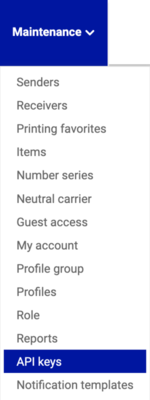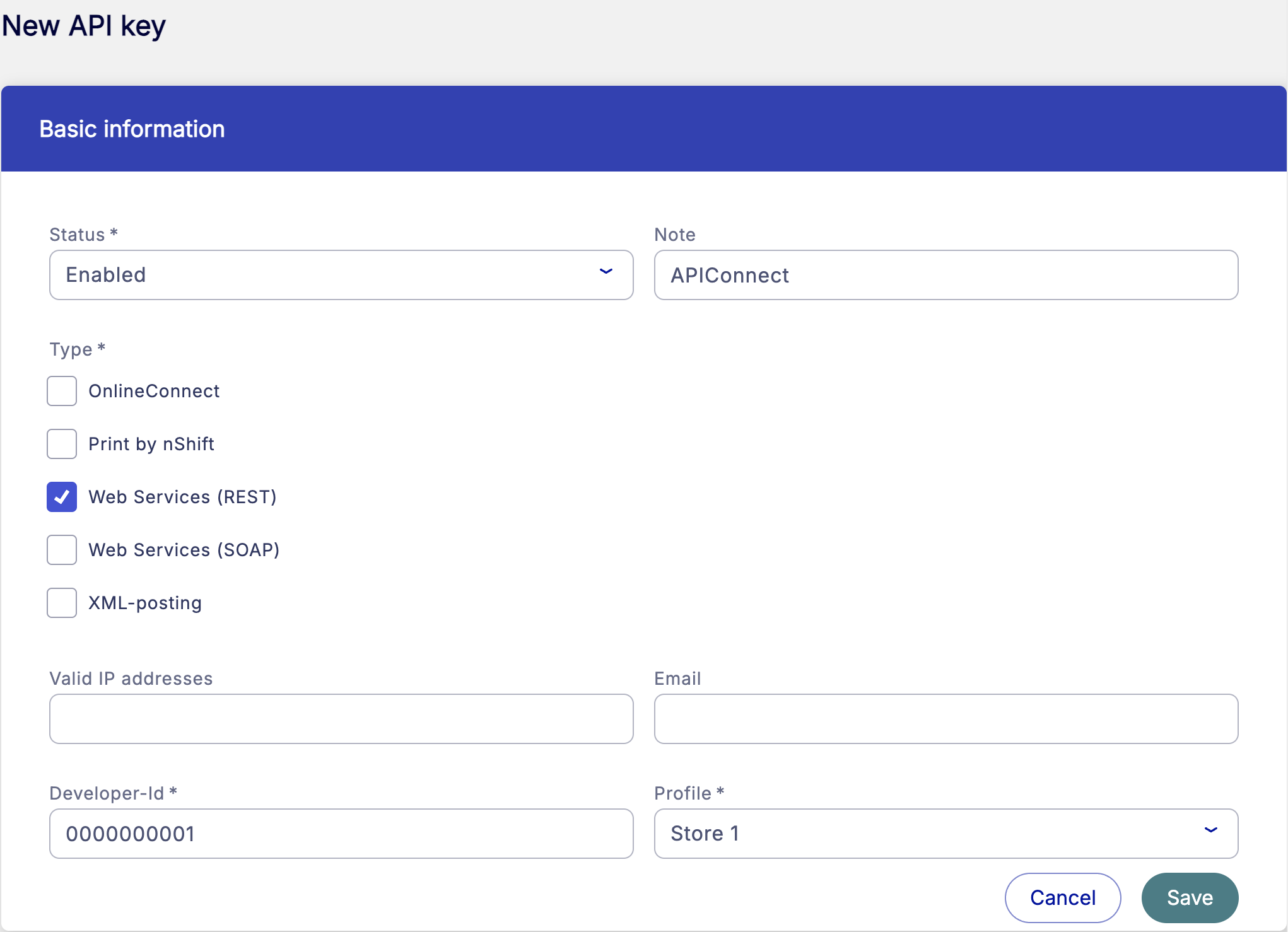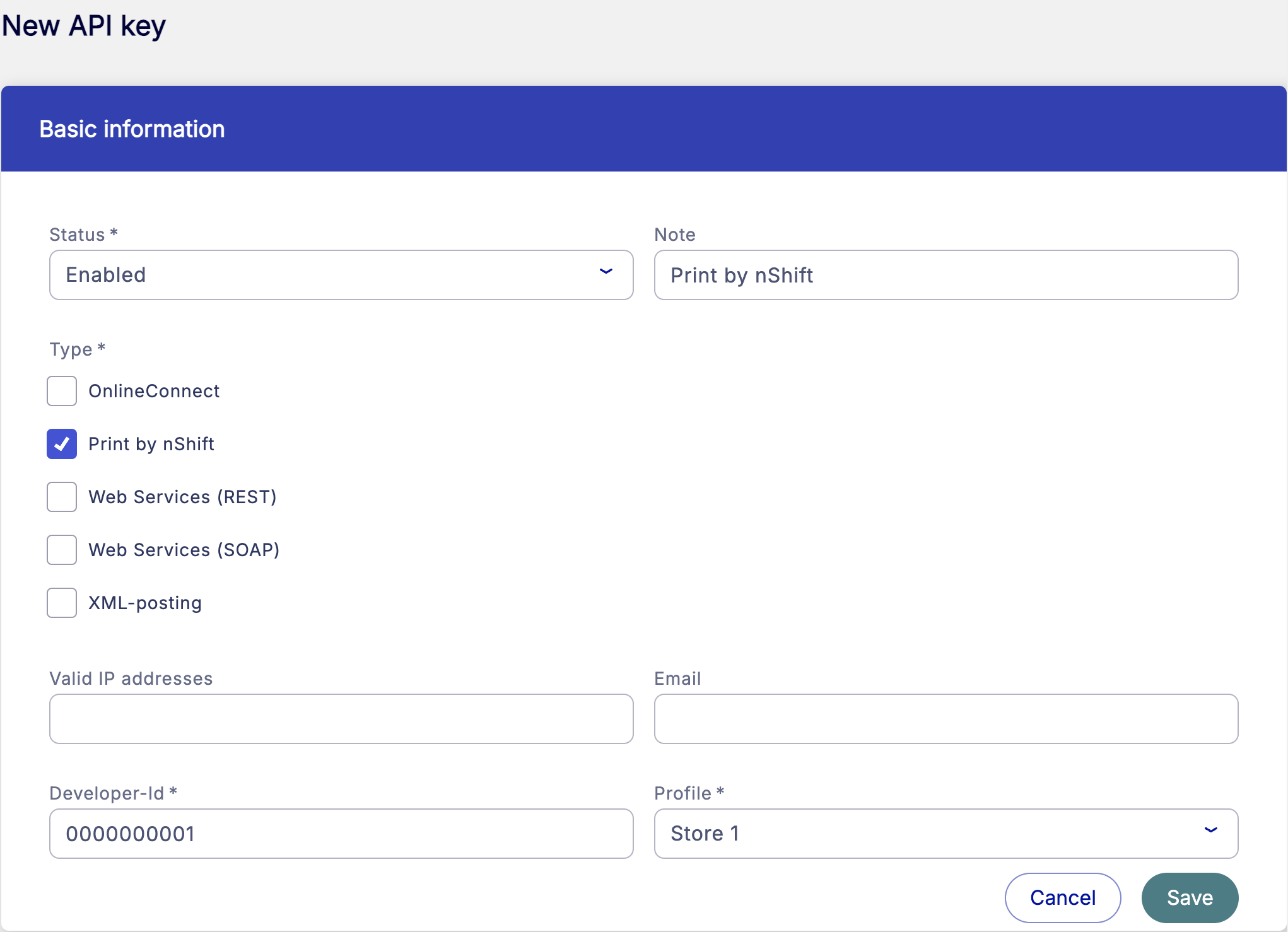Authorization and access
Before getting started you need to know your developer ID and create an API key.
REST API
REST API requires basic authentication using an API key or custom bearer token based on API key.
The REST API endpoints are only accessible via HTTPS and are located at api.unifaun.com.
https://api.unifaun.com/rs-extapi/v1 |
Developer ID
Developer ID is your nShift Delivery user ID. It's used as identification to make it easier for nShift to assist and support you.
Note
Being a partner you should always provide your nShift Delivery user ID, not your customer's.
REST API - enter
developerId(string) in theshipmentobject.XML -
<val n="developerid">is declared as<meta>element under the root element<data>.
API keys
An API key is a unique identifier used to authenticate an application or user.
API keys can be used on account or profile level.
Notice
If you have profile management activated on your account, you can create API keys connected to a specific profile. This API key then uses the profile group of the selected profile to filter out what information you can collect using the API, and where it will be posted.
Caution
An API key connected to a specific profile can't be used with the following endpoints:
GET /alerts
GET /shipments
Create an API key
Log into nShift Delivery.
Go to > .

Click .
Status should be "Enabled".
Type should be set according to your integration service.
Specify what the API key is used for in the Note field.
Tip
As you can create multiple API keys, it's recommended to use the Note field.
Enter Valid IP addresses if the API key should only be used from certain IP addresses or ranges of IP addresses.
The Email field is not used at this time.
Enter your Developer ID.
Note
Normally, the developer ID is your account user ID. But if you have, or are, an ERP, webshop provider or other third party that will post data into the account, it's the user ID of the provider's account.
Select a Profile in the drop-down menu, if the API key should be connected to a specific profile.
Click .
The system will automatically generate the key consisting of an ID, a secret ID and a combined ID.
It's the ID and the secret ID that you use to authenticate towards the REST API framework.


Use the search function to search for your API keys.